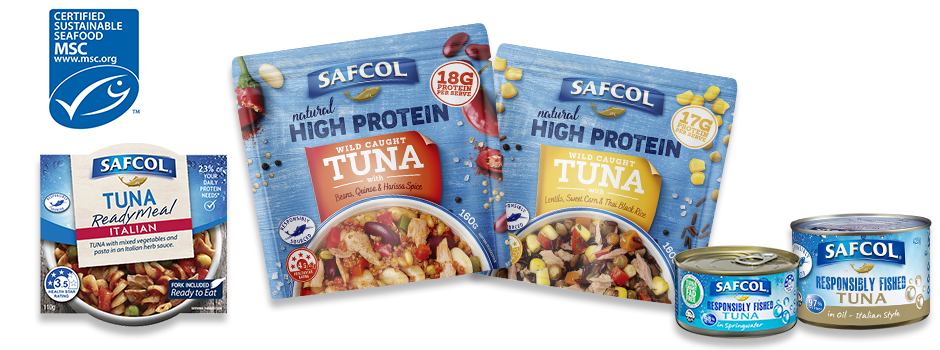7 Ways to Maintain Weight Loss
Posted on : April 4, 2023
by Ashleigh Feltham Accredited Practising Dietitian and Accredited Nutritionist
A reduction of 5-10% in body weight is linked to substantial health benefits including a reduced risk of death and disease, and an increased quality of life.
It is a sad fact that around 90% of people who lose weight will put it back on over 6 to 24 months.
There is some good news: a recent study has reported key lifestyle habits that help put the odds in your favour. Incorporate these seven strategies into your life to maintain weight loss.
- Include Enough Seafood
Include 100g of cooked seafood each week to help you sustain your weight loss. Seafood consists of high amounts of healthy fats and protein, helping you feel full for longer, and regulating blood sugar.
Choose seafood that is responsibly sourced and has Marine Stewardship Council certification.
- Remember To Move It
Exercise is a key component of weight management. Research found that those who kept weight off did more than double the Physical Activity Guidelines for Americans, taking an average of 6340 steps a day. The guidelines recommend 150-300 minutes a week or 75-150 minutes of vigorous-intensity aerobic physical activity a week, or an equivalent combination of moderate- and vigorous-intensity aerobic activity.
The benefits of exercise go beyond weight loss maintenance. Exercise helps your body to function at its best, reduce the risk of diseases and helps you to live longer. Find ways of exercise that you find enjoyable, so you can stick to them for the long term.
- Get Off Your Seat During the Day
Your exercise time each day is important, but the need to move extends beyond your workout. Those who were able to keep the weight off reported an average time seated of 8.5 hours a day.
Aim to get up and move every half hour of seated time. Set a reminder on your watch or phone, or volunteer to run errands at work, such as the coffee run. On sunny days, propose a literal change of pace with walking meetings.
- Eat at Home
The chances of regaining lost weight rise with eating out excessively. Research suggests that those who maintain their weight loss ate out at restaurants no more than 2.5 times a week. There are several benefits to eating at home, such as having control over the ingredients of your meals, and it’s budget-friendly, too.
- Take Advantage of Low-Fat Choices and Recipes
Research suggests that those who use low-fat varieties and recipes are more likely to keep the weight off. Try to substitute reduced fat versions into your meals to meet your daily nutritional needs while at the same time maintaining a controlled daily calorie budget.
- Limit Fried Foods, Sugary Drinks and Desserts
Added sugar in desserts and drinks as well as low-quality calories in fried foods will easily tip you into a calorie surplus, resulting in weight gain. The key is not to quit these foods and drinks altogether, but to treat them as occasional treats. Moderation is a key factor to your long-term success.
- Eat Plenty of Fruit and Vegetables
Including the recommended daily serves of vegetables not only helps to keep your body functioning optimally, but it also helps you maintain long term weight loss. Try adding fruit as a snack, in a smoothie or with cereal at breakfast. Half of each meal should consist of a variety of different vegetables. This is an easy way to give your body the needed serves of fruit and vegetables each day.
Take home message
There is no single factor that helps you to maintain your weight loss. Use the above key strategies to help you beat the odds and keep the weight off for life.

References:
- Gibbs BB, Tudorascu D, Bryce CL, Comer D, Fischer GS, Hess R, Huber KA, McTigue KM, Simkin-Silverman LR, Conroy MB. Lifestyle Habits Associated with Weight Regain After Intentional Loss in Primary Care Patients Participating in a Randomized Trial. J Gen Intern Med. 2020 Nov;35(11):3227-3233. doi: 10.1007/s11606-020-06056-x. Epub 2020 Aug 17. PMID: 32808209; PMCID: PMC7661615.
- Piercy KL, Troiano RP, Ballard RM, Carlson SA, Fulton JE, Galuska DA, George SM, Olson RD. The Physical Activity Guidelines for Americans. JAMA. 2018 Nov 20;320(19):2020-2028. doi: 10.1001/jama.2018.14854. PMID: 30418471.
- Wing RR, Phelan S. Long-term weight loss maintenance. Am J Clin Nutr. 2005 Jul;82(1 Suppl):222S-225S. doi: 10.1093/ajcn/82.1.222S. PMID: 16002825.





